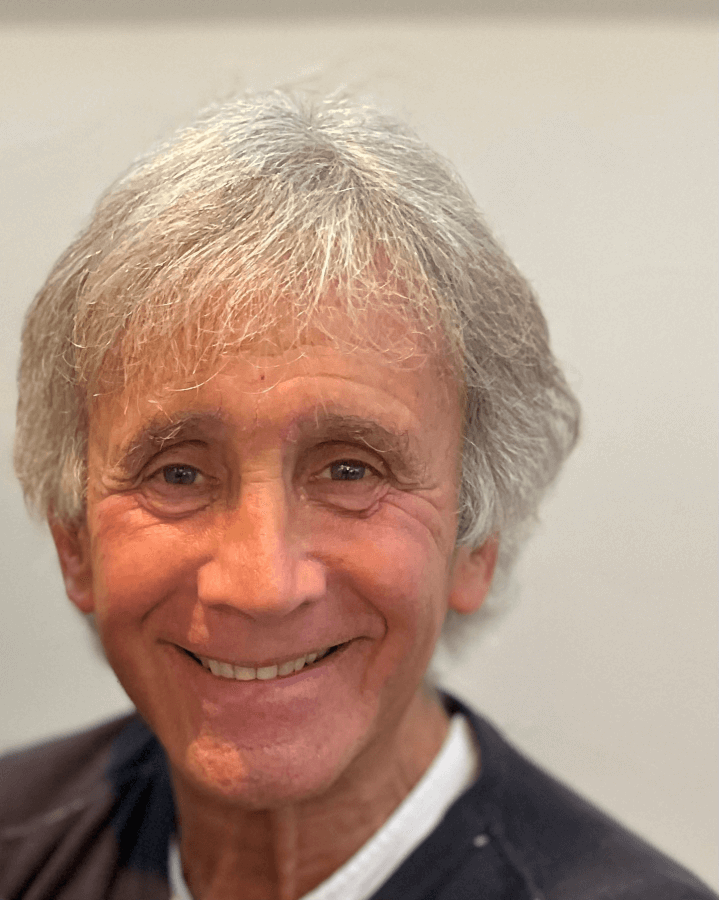Dr Duncan Dymond's Biography
It is important that you feel relaxed and fully informed when contacting your chosen Consultant Cardiologist. On this page you can read a little about Dr Duncan Dymond’s career to date. You will be able to read about all his qualifications and experience and, in addition, you can find out out more about the personal, patient-focused approach that Dr Dymond brings to his role as Consultant Cardiologist.

- Education & Training
-
Dr. Duncan Dymond started his medical education at St. Bartholomew’s Hospital Medical School where he won the David Weizman Memorial Prize in Cardiology in his final year. He then trained in non-invasive and invasive Cardiology, in the Department of Cardiology at Bart’s hospital.
In March 1980 he took up a position at the University of Wisconsin-Mount Sinai Medical Centre as Director of Nuclear Cardiology and Assistant Professor of Medicine. He continued to broaden his experience and continued working with radioisotopes, and publishing in United States journals. At this time he also started to learn the technique of coronary angioplasty (balloon treatment) that was just taking off.
Dr Dymond was a Consultant at St Barts from 1987 to 2013 and, since 2013, has been an Honorary Consultant at Barts Health.
- Teaching
-
Since his appointment he has supervised the completion of 3 MD Doctorates by his research registrars, and continued to lecture at home and abroad. He has also continued to publish widely in peer-reviewed journals and has contributed numerous invited articles and editorials.
He has throughout his career developed a skill in teaching, not only to medical under-graduates and post-graduates, but also to nurses, technicians, and to a wider audience of non-medical workers, especially those involved in life underwriting, to whom he is a speaker much in demand.
- Current Clinical Practice
-
Currently Dr Duncan Dymond is actively involved in most aspects of adult cardiology. He sees patients with chest pains, shortness of breath, dizziness and collapse, palpitations etc. He has maintained his expertise in the use and interpretation of radio-isotope imaging techniques in both diagnosing coronary artery disease and in the assessment of its prognosis. He is also widely experienced in the use of EBCT calcium scanning to assess future risk, and has an interest in the developing techniques of CT angiography and magnetic resonance imaging of the heart.
As far as procedures are concerned, his major expertise is in the field of percutaneous coronary intervention (PCI) which involves the use of stents to open blocked or narrowed arteries. Dr Duncan Dymond has been in this field since 1980 and in fact was among the first to use balloon technology in the UK. He specialises in complex cases such as multivessel disease, chronically blocked arteries, and narrowings in bypass grafts as a few examples. His results, success and complication rates are produced each year as part of the NHS appraisal process.
- Membership & Affiliation
-
Dr Dymond has served on the Scientific Committee of the European Society of Cardiology and was elected a Founder Fellow of that Society. He has also served as a member of Council of the British Cardiovascular Intervention Society (concerned with angioplasty and related technology) and was elected Honorary Secretary of the British Cardiac Society, serving from 1990 to 1994. In this role he was also a member of the Cardiology Committee of the Royal College of Physicians, and was elected to the full Fellowship of that College in 1991.
He is a Fellow of the American College of Cardiology and a Founder Fellow of the European Society of Cardiology. He is currently a member of the Finance Committee of the British Cardiovascular Society. He is Chairman of the London Consultants Association and Lead Clinician for Clinical Standards at the Wellington Hospital in London
- Publication & Research
-
Dr Dymond has more than 100 scientific articles to his name. In 1993-1994 he was invited by Parthenon Publications to write the ‘Atlas of Myocardial Infarction’, one of the visual encyclopaedias, and this was published in 1994.
Duncan Dymond is the senior author on a cardiology text book for undergraduates, and was also Editor of a distance learning publication for Cardiologists to help Continuing Medical Education (CME), as well as writing new material for the non-medical public. He also remains an active practitioner in the field of angioplasty and stenting for coronary disease, and visited Northern Cyprus in 1996, at the invitation of the President.